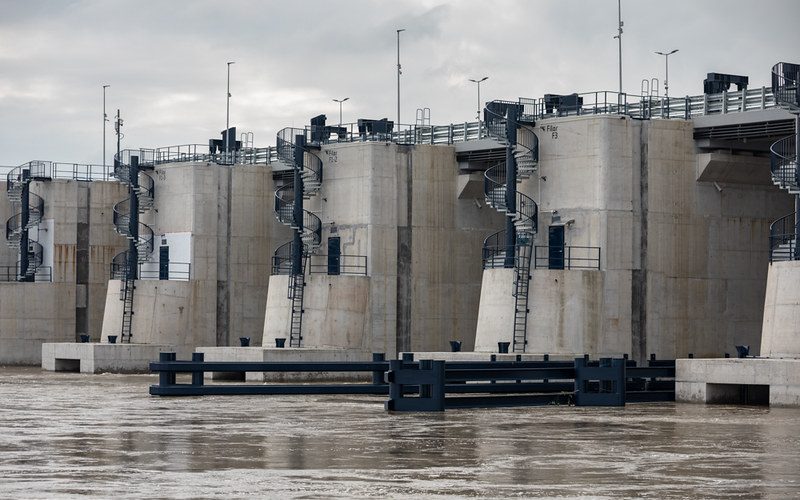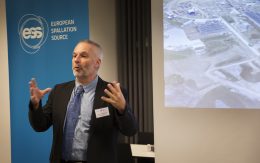The previous year, 2020, was a year of stagnation for many industries, including the construction industry worldwide and thus, Poland was no exception (Bartman, 2020). As the New Year is starting and certain medical developments are aiding the society battle the coronavirus, the Polish construction sector seeks to recover through new investments, aided by the EU 2021-2017 Budget (Bayer, 2020). While the establishment of new projects brings many new themes and hopes, it also reawakens old issues and concerns, one of them being the displacement of people, a topic this article presents.
Displacement of people caused by economic development is a phenomenon occurring in all parts of the world and is caused by a variety of reasons, including urbanization, development of transport, mining or agriculture. Often, this process is considered necessary for the growth of a country and usually, the displaced individuals are given financial compensation in form of money or ready goods such as housing (Terminski, 2013). Relocation of citizens for construction is often very long and bureaucratic, and associated with the need to make many compromises in order to reach a decision. In Poland, the complexity of this process does not excel the one of other countries, however it is worsened by the country’s economic and political situation. Financial insecurity, lack of clarity or transparency as well as the imbalance between the conservative way of thinking and the need to adhere to the speed of construction in other European Countries often leads to situations where the drawbacks of big building projects exceed their benefits on local levels, causing long-term negative effects on the society (Terminski, 2013).
In general, Polish citizens fear the thought of being displaced not only due to historical reasons or the traditional way of looking at land as an inherited wealth, which must be respected or preserved (Puzio, 2011), but also because there are still many examples, where development induced displacement led to unemployment, loss of security or stability, mental or health problems and housing troubles (Terminski, 2013). Many issues arise in the sphere of compensations or unclear building schedules. There are numerous instances where the process of paying out money to the affected citizens was slow and long, in the end giving them very little time to actually move out, like in the case of the citizens of Rybnik, who were only given three to six months, instead of previously agreed two years to completely leave their homes. At the same time, their ability to plan a move in such a short period was hindered by a delayed payment of compensation (Kubica, 2016). There are also cases where, even when the reimbursement is paid out, it is not adapted to current market standards, which happened for example in Bobrek to families whose farms were completely destroyed due to the building of Oświęcim Ring Road. The compensation they have received has not been enough to pay for the erection of a new house, thus, most of the work had to be done by themselves, which prolonged the process of establishing a secure housing situation (Bromboszcz, 2016).
Although certain displacement projects in Poland prove successful, even then, the process is very complex and confounding for the ones forced to participate. An example of that would be a project in Nieboczowy, a small village in the Silesian region of Poland, which became prominent in the Polish news is the second decade of the 21st century. The village lay near the river Odra and was prone to and often affected by floods caused by the rising water of the river after rainfall (Kozłowski, 2002). The government thus planned the construction of the Racibórz Dolny flood control reservoir, which helped protect a huge flood region of Odra, but also brought with it the need to move the entire village to a completely new location seven kilometres away (Onet.pl, 2016). The residents of Nieboczowy were offered new apartments, monetary compensation and were given the opportunity to live in a new setting, which gave them much more safety and security from floods that previously often caused them to suffer lack of electricity, damage to buildings and loss of agricultural produce (tvn24, 2016). The process in itself, however, caused many hardships and years of anxieties. Residents were left without being certain about their compensation and the ‘step-by-step’ plan for movement was in-transparent and unavailable. Additionally, it was very difficult for the inhabitants of Nieboczowy to receive answers to their fears from the authorities, who themselves were continuously unsure about the success of the project as a whole, especially when EU Commission refused to fund the building of the reservoir (Karpeta, 2005).
In the end Nieboczowy was rebuilt to look exactly like its original version in a completely new location and the flood control system was completed. The long and confusing process took over a decade, which had a strong impact on the mental, economic and social well-being of individual inhabitants (tvn24, 2016).
The presented examples, both negative and positive, may act as general precedents for upcoming construction projects, even if many of them are still in planning phases. One most recent and most advanced includes the Złoczew open pit mine. It is a case of mining-induced displacement and resettlement (MIDR) and although still not finalized, it is already causing a lot of controversy due to the unclear plans for movement of residents, support with new jobs and long-term environmental impacts.
The project is located in Złoczew, a region near Bełchatów, a location of the largest open-pit mine in Poland, which excavated brown coal used in the Bełchatów Power Station, producing over 20% of domestic electrical energy. Due to the resources in the main mine running out, the government has decided to start a new one, in the before-mentioned Złoczew. Most of the affected residents are concerned with the fact that over 33 villages and over 3000 inhabitants will be resettled, a process which is still opaque and not finalized, even though the construction is planned to start in the coming year (Bednarz, 2020). Regional farmers are also frustrated about the ambiguousness with which the authorities address the issues of shifting funds from agriculture to mining development and are concerned with their job opportunities considering that the mine would disrupt the existing transport and water infrastructure and there are currently no alternative plans. Another big, undiscussed effect of displacement in Złoczew is the current insurance system for workers from the region. Upon building a new mine, the area would belong to PGE, who owns the Bełchatów mine and is the main investor. They provide their own system of social insurance for their workers, which does not include other industries e.g farmers (Bednarz, 2019). Without having clarity on their social insurance situation, the inhabitants are worried that their livelihood may be threatened and they will have no resources to cope with the possible effects of the mine itself, such as the disturbance of underground waters, which are crucial to ensure the sustainability of their farm work.
Similarly to Złoczew, there are many unsolved, ongoing or open cases of development-induced displacement in Poland. Even though the next years may potentially bring an increase in construction projects, the building industry must face these challenges as dismissing their importance can lead to severe consequences.
Sources
Bartman, K., 2020. Koronawirus Uderzył Nawet W Budownictwo. Tu Też Zaczęły Się Zwolnienia. [online] www.money.pl. Available at: <https://www.money.pl/gospodarka/koronawirus-uderzyl-nawet-w-budownictwo-tu-tez-zaczely-sie-zwolnienia-6529187617916545a.html> [Accessed 11 January 2021].
Bayer, L., 2020. Council Grants Final Approval To 2021-2027 EU Budget. [online] POLITICO. Available at: <https://www.politico.eu/article/eu-council-final-approve-2021-2027-eu-budget/> [Accessed 11 January 2021].
Bednarz, P., 2020. Kopalnia Odkrywkowa W Złoczewie. Przesiedlą 3 Tys. Ludzi I Zniszczą 33 Wsie? „Ultimatum Do Końca Roku”. [online] Biznes Wprost. Available at: <https://biznes.wprost.pl/branze/10354889/kopalnia-odkrywkowa-w-zloczewie-przesiedla-3-tys-ludzi-i-zniszcza-33-wsie-ultimatum-do-konca-roku.html> [Accessed 11 January 2021].
Bednarz, P., 2019. Tysiące Wysiedlonych Ludzi Ze Złoczewa I Okolicznych Wsi. W Zamian “Nowy Bełchatów” Miałby Dać Skok Rozwojowy Dla Regionu. [online] Business Insider. Available at: <https://businessinsider.com.pl/finanse/nowa-odkrywka-wegla-brunatnego-w-zloczewie-konflikt-rolnikow-z-pge/p3v3h87> [Accessed 11 January 2021].
Bromboszcz, S., 2016. Bobrek. Nie Mają Pieniędzy Na Dom. [online] Oświęcim Nasze Miasto. Available at: <https://oswiecim.naszemiasto.pl/bobrek-nie-maja-pieniedzy-na-dom/ar/c3-3909911> [Accessed 11 January 2021].
Karpeta, A., 2005. Nieboczowy: Do Wysiedlenia 700 Osób. [online] Rybnik Nasze Miasto. Available at: <https://rybnik.naszemiasto.pl/nieboczowy-do-wysiedlenia-700-osob/ar/c8-6302179> [Accessed 11 January 2021].
Kozłowski, 2002. Obszary Zalewowe Odry. [online] Dzikiezycie.pl. Available at: <https://dzikiezycie.pl/archiwum/2002/kwiecien-2002/obszary-zalewowe-odry> [Accessed 11 January 2021].
Kubica, B., 2016. Dostali 3 Miesiące Na Opuszczenie Domu. [online] Dziennik Zachodni. Available at: <https://dziennikzachodni.pl/dostali-3-miesiace-na-opuszczenie-domu/ar/9948979> [Accessed 11 January 2021].
Onet.pl, 2016. Nieboczowy – Wieś Wysiedlona W Wyniku Budowy Zbiornika Racibórz Dolny. [online] Onet Wiadomości. Available at: <https://wiadomosci.onet.pl/slask/wysiedlona-w-wyniku-budowy-zbiornika-wies-nieboczow/9y537x6> [Accessed 11 January 2021].
Puzio, P., 2011. Wysiedleni Przez Budowę S17: Ekspresówka Złamała Nam Życie – Dziennik Wschodni. [online] Dziennik Wschodni. Available at: <https://www.dziennikwschodni.pl/lubelskie/wysiedleni-przez-budowe-s17-ekspresowka-zlamala-nam-zycie,n,1000125963.html> [Accessed 11 January 2021].
Terminski, B. (2013). Wysiedlenia inwestycyjne: przyczyny, konsekwencje i kontekst prawny. Revista Europea de Derecho de la Navegación Marítima y Aeronáutica, 30, 1-49. https://nbn-resolving.org/urn:nbn:de:0168-ssoar-341860
tvn24, 2016. Wieś Przenieśli 7 Km Dalej. Cmentarz I Kościół Też. Będzie Jezioro. [online] TVN24.pl. Available at: <https://tvn24.pl/magazyn-tvn24/wies-przeniesli-7-km-dalej-cmentarz-i-kosciol-tez-bedzie-jezioro,54,1187> [Accessed 11 January 2021].








Be First to Comment